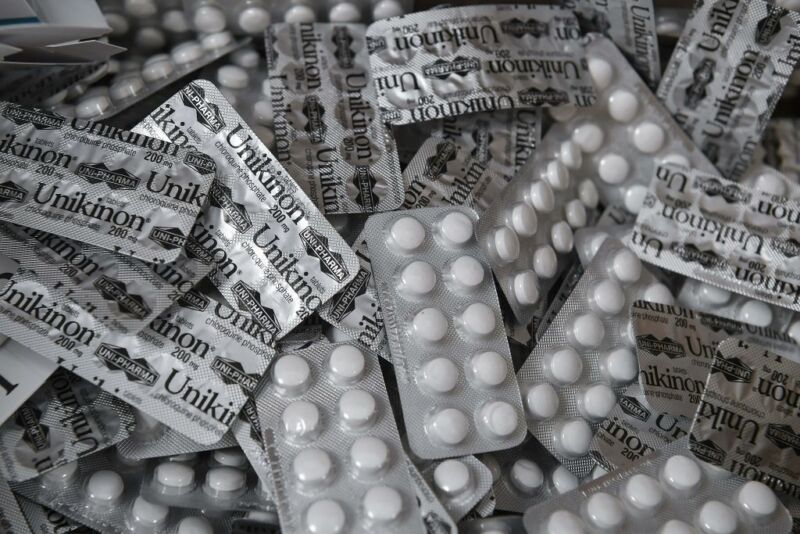US FDA pulls its emergency approval of chloroquine use for COVID-19

Enlarge (credit: LOUISA GOULIAMAKI)
On Monday, the US Food and Drug Administration revoked its Emergency Use Authorization that allowed doctors to prescribe chloroquine and its derivatives to treat SARS-CoV-2 infections. The move came in response to a growing body of data indicating that the drugs had little to no impact on the progression of COVID-19 but retained all of its well-known side effects. But the politics behind these drugs, which have a user list that includes President Donald Trump, will probably continue to drive controversy long after this decision.
The FDA and the soap operaUS law allows the FDA to approve emergency use of therapies under a specific set of circumstances. In late March, with a few small, anecdotal studies suggesting that chloroquine derivatives could improve the prognosis for COVID-19 patients, the FDA determined that the potential benefits outweighed the known risks and granted the drugs an Emergency Use Authorization. This decision came after doctors had already started prescribing the drugs off-label, leading to a shortage. The drugs are normally used to treat malaria and autoimmune diseases.
Over time, however, supporting evidence failed to build, and the known side effects-which include the drugs' ability to trigger potentially fatal arrhythmias in susceptible patients-continued to be a problem. Responding to some fatal incidents, the FDA updated its Emergency Use Authorization to indicate that the drug should only be used in the context of a clinical trial or in hospitals, where care is available to immediately identify and treat any issues caused by the drugs' side effects.
Read 7 remaining paragraphs | Comments